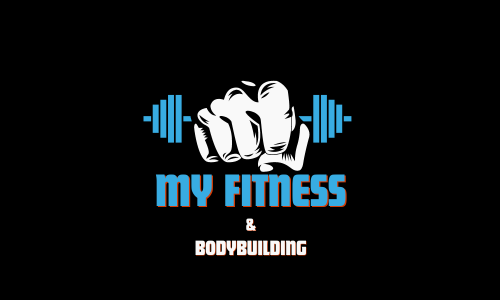Life is unpredictable, and so is our journey with fitness and bodybuilding. There are numerous reasons why someone might take a temporary step back from their gym routine. Common causes include injuries that require time to heal, significant life events that demand our attention, or simply feeling burned out and needing a mental break.
Whatever the reason, it’s crucial to recognize that taking a hiatus from the gym is a part of many people’s fitness journeys. However, it’s equally important to understand the consequences of pausing our gym routines, not as a deterrent, but to prepare and adapt our approach to fitness during these breaks.
The Immediate Effects of Stopping Your Gym Routine
Muscle Mass and Strength Loss
One of the most immediate and noticeable effects of pausing your gym routine is the loss of muscle mass and strength, a process known scientifically as atrophy. Muscle atrophy occurs when the muscle fibers undergo a reduction in size due to a lack of physical activity.
The body, ever-efficient, begins to break down these fibers for energy, leading to decreased muscle mass and, consequently, strength. This process can start as early as two to three weeks after the last workout, varying from person to person based on their baseline fitness level and the intensity of their training regime prior to stopping.
Metabolic Changes
Alongside the decline in muscle mass and strength, there’s a notable impact on the body’s metabolism. Muscles are metabolic powerhouses, burning calories even when we’re at rest. The decrease in muscle mass leads to a slower metabolism, meaning the body burns fewer calories throughout the day.
This metabolic shift can lead to an increase in body fat percentage over time if dietary habits remain unchanged. Additionally, the decrease in energy expenditure might contribute to feelings of fatigue, making it even harder to get back into a routine of regular physical activity.
Long-Term Consequences of a Gym Hiatus
Decreased Physical Health
The ripple effects of stepping away from the gym extend far beyond the immediate loss of muscle mass and metabolic slowdown. Over time, the implications for physical health can become significantly more severe. An increase in body fat is one of the more obvious potential outcomes, but the consequences run deeper. Bone density, for instance, may begin to decrease without regular weight-bearing exercises, increasing the risk of osteoporosis and fractures.
Moreover, the cardiovascular system, which benefits immensely from consistent exercise through improved heart efficiency and blood circulation, can suffer. Reduced physical activity levels can lead to a higher risk of developing heart disease, hypertension, and type 2 diabetes, marking a stark contrast to the protective effects once afforded by regular gym attendance.
Mental Health and Well-being
The gym serves as more than just a place to work out; for many, it’s a sanctuary for mental health. Regular exercise is known to release endorphins, often dubbed ‘feel-good’ hormones, which can help in managing stress and anxiety. The sudden absence of this outlet can lead to a noticeable increase in stress levels, anxiety, and even depression for some. Moreover, the routine of going to the gym, the sense of accomplishment after a workout, and the community one builds there can significantly contribute to an individual’s overall sense of well-being.
Losing this can feel akin to losing a part of one’s identity or support system, making the mental health impacts of a gym hiatus profound and multifaceted.

The Psychological Battle: More Than Just Physical Loss
Loss of Routine and Discipline
A consistent gym routine offers more than just physical benefits; it instills a sense of discipline and structure in one’s daily life. This routine, once broken, can lead to a domino effect, where the loss of a structured schedule impacts various aspects of daily life, from sleep patterns to productivity.
The discipline developed through regular workouts often transcends the gym, influencing diet, work ethic, and even social interactions. The absence of this discipline can leave a void, making it challenging to find motivation not just for physical activity but for other life responsibilities.
Impact on Self-Image and Confidence
The physical changes from stopping gym activities, such as increased body fat or lost muscle tone, can significantly impact one’s self-image and confidence. For many, progress in the gym translates directly to positive self-perception and a sense of personal achievement.
The reversal of this progress can lead to feelings of frustration, disappointment, and a diminished sense of self-worth. It’s a reminder that the impact of a gym hiatus is not just seen in the mirror but felt in the depths of our self-esteem and confidence.
Navigating the Break: How to Minimize the Impact
Staying Active Outside the Gym
Taking a hiatus from the gym doesn’t mean you have to pause your fitness journey entirely. There are numerous ways to stay active and maintain a level of physical fitness outside the traditional gym setting:
- Home Workouts: Leverage bodyweight exercises, such as push-ups, sit-ups, and squats, which require no equipment and can be done anywhere. Online platforms offer a plethora of workout routines catering to all fitness levels.
- Outdoor Activities: Embrace the outdoors by going for runs, bike rides, or even brisk walks. These activities not only keep you physically active but also have the added benefit of fresh air and a change of scenery.
- Sports: Engaging in sports, whether it’s joining a local football team, playing tennis, or swimming, can be a fun and social way to stay fit and fill the gap left by the gym.
Focus on Nutrition
A balanced diet plays a crucial role in compensating for reduced physical activity during a gym break:
- Nutritional Balance: Ensure your diet is rich in fruits, vegetables, lean proteins, and whole grains to support overall health. Adjust your calorie intake if necessary to match your current level of physical activity.
- Hydration: Maintaining adequate hydration is essential, especially if you continue to engage in physical activities outside the gym.
- Moderation: Be mindful of portion sizes and the temptation to indulge in unhealthy foods, particularly if your daily energy expenditure decreases.
Mental Health Maintenance
Maintaining a positive mindset and motivation is just as important as physical activity:
- Meditation and Mindfulness: Practices like meditation, yoga, and mindfulness can reduce stress and improve mental health, offering a sense of calm and focus during uncertain times.
- Hobbies and Interests: Pursuing hobbies or interests outside of fitness can provide a mental break, reduce stress, and keep you engaged and motivated.
- Stay Connected: Keeping in touch with friends, family, and your fitness community can provide emotional support and motivation.

Getting Back on Track: Returning to the Gym
Ease Back Into Your Routine
When you’re ready to return to the gym, it’s important to start slowly to avoid injury and burnout:
- Gradual Increase: Begin with lighter weights and fewer days per week, gradually increasing the intensity and frequency of your workouts as your strength and endurance improve.
- Listen to Your Body: Pay close attention to how your body responds to resuming exercise, and adjust your routine accordingly to prevent overexertion.
Re-establishing Goals
Setting new fitness goals can help refocus your efforts and provide direction:
- Realistic Objectives: Set achievable goals that motivate you and provide a sense of progress, whether it’s improving strength, endurance, or achieving a specific fitness milestone.
- Track Progress: Monitoring your progress towards these goals can be incredibly motivating and help maintain focus.
The Importance of Community
The support and encouragement of a community can be invaluable:
- Gym Buddies: Reconnect with gym friends or make new ones. Working out with others can increase motivation and accountability.
- Online Communities: Engaging with online fitness forums or social media groups can provide inspiration, advice, and a sense of belonging.
Remember, fitness is a lifelong journey with ups and downs, and the most important step is always the next one.
Conclusion
Throughout this discussion, we’ve navigated the complexities of taking a break from the gym, addressing both the immediate and long-term impacts on physical health, mental well-being, and the psychological aspects of breaking a routine.
From the muscle atrophy and metabolic shifts that occur shortly after ceasing regular workouts, to the more profound implications on mental health, self-image, and the structure of our daily lives, the effects of stepping away from the gym can be significant. However, as we’ve explored, these challenges are not insurmountable.
The journey through a gym hiatus can indeed be a complex one, filled with its share of obstacles and revelations. Yet, it’s important to remember that these breaks can also provide an opportunity for growth, reflection, and a deeper understanding of our resilience.
By staying active outside the gym, focusing on nutrition, and maintaining our mental health, we can mitigate the impacts of a break. And when the time comes to return, doing so with a sense of purpose, patience, and community can make all the difference in reigniting our passion for fitness.
To those of you who’ve faced or are currently navigating a break from your gym routine, let this be a reminder: Returning is not only possible, but it also holds the promise of new achievements, learnings, and the continued pursuit of your fitness goals.
The path back to the gym is as much about rediscovering your strength as it is about celebrating the resilience of the human spirit in the face of challenges.
Now, I’d love to hear from you. Have you ever taken a break from the gym? How did it affect you, and what strategies did you employ to cope with the change and eventually make your return? Your stories of challenge and triumph can serve as a beacon of inspiration and guidance for others in our community.
Furthermore, if there are topics related to fitness and well-being you’re curious about or challenges you’re facing, don’t hesitate to share them in the comments. Your questions and suggestions are not only welcomed but essential in shaping our journey together towards a healthier, more fulfilled life.
Together, let’s continue to share, learn, and grow in our fitness journeys, embracing both the highs and the lows with equal measure of grace and determination.



